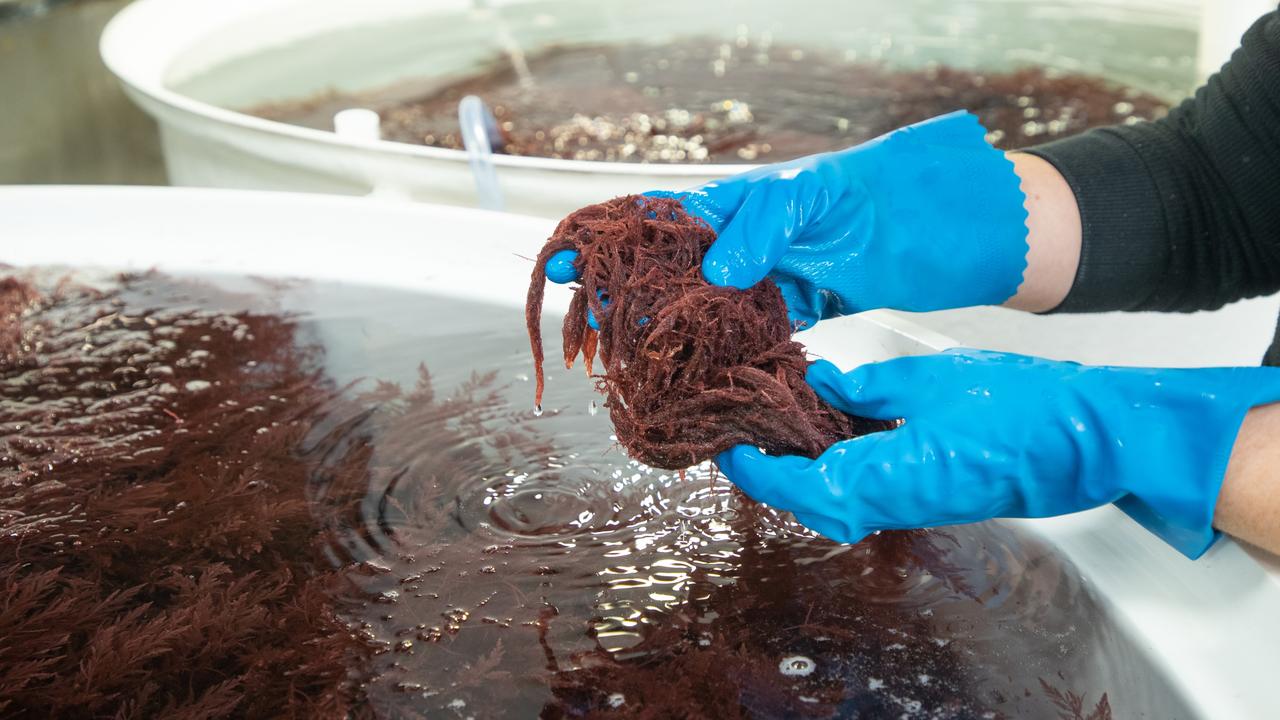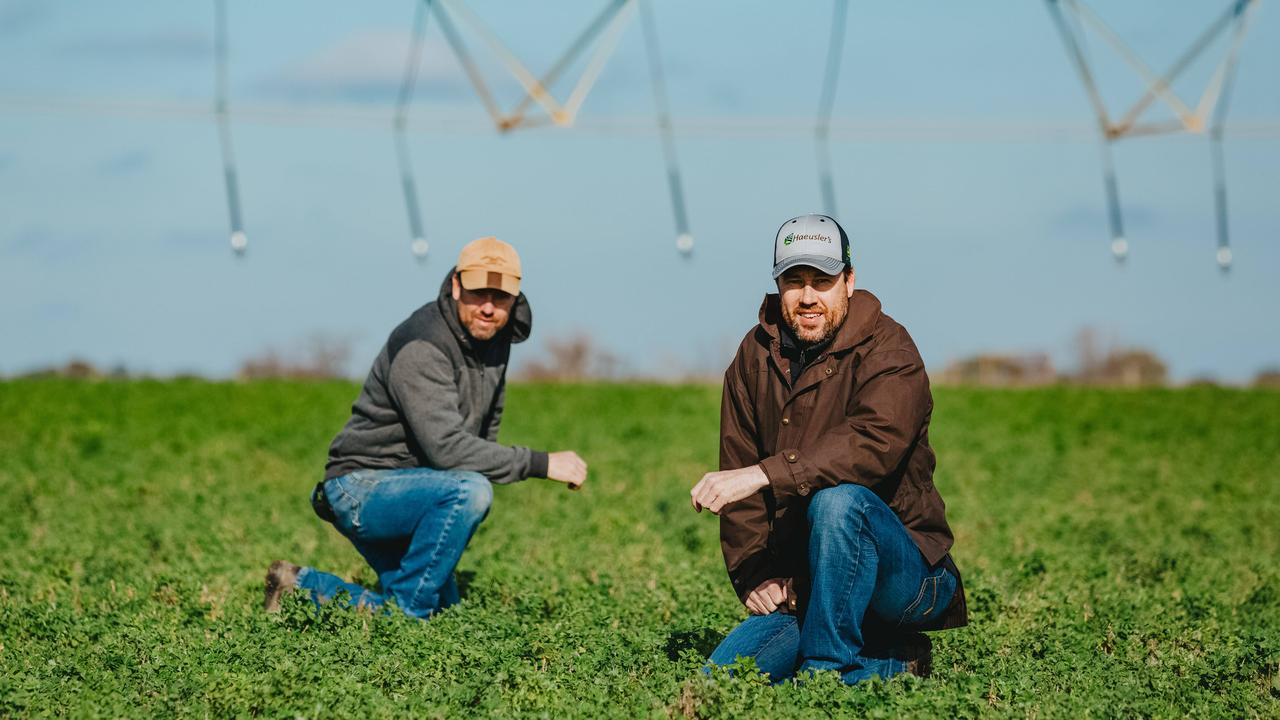Queensland farmer Becky Dart puts the bite into bamboo
Belli Park grower Becky Dart masters the giant grass that most people consider a pest, then turns it into a gourmet ingredient.
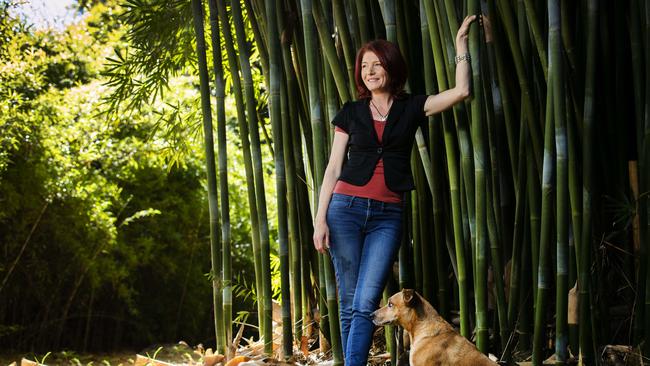
- Victoria’s most and least expensive regions for small farm sales
- What you get as a subscriber to The Weekly Times
IT’S fair to say bamboo has its detractors.
Generally they’re green thumbs who denounce it as an invasive pest, bemoaning runners that tunnel the length of a street to take over gardens.
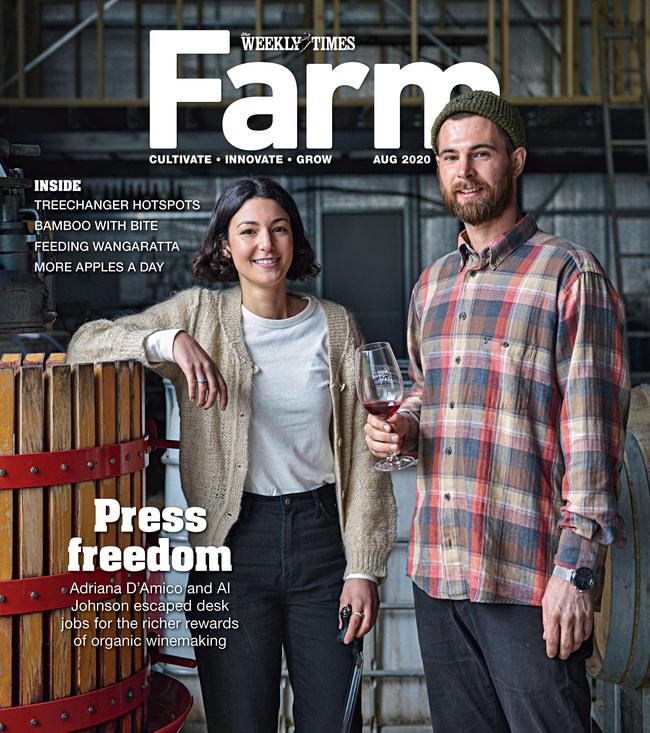
But Becky Dart says the plant – the world’s largest grass, which has been recorded growing up to a metre a day – has been unfairly maligned.
And she has the awards and success to prove it.
Becky runs Big Heart Bamboo on an eight-hectare slice of her father’s 40-hectare bamboo farm at Belli Park, on Queensland’s Sunshine Coast hinterland.
Since the business opened in 2014, Becky harvests two to eight tonnes of shoots annually, sold fresh to restaurants in the Noosa area, as well as in jars as gourmet pickled bamboo, which for two years running has won Queensland’s gold Delicious Award.
The 34-year-old has recently released new value-added preserves – chutney, relish and compote in such delectable flavours as chilli and pina colada – with bamboo leaf tea to be released this year and frozen fresh shoots to be launched next year.
Becky says bamboo is not just a versatile fresh and value-add product.
“A lot of people think bamboo is an invasive species that can be annoying to get rid of and out-competes natives,” she says.
“But I’m a mad, passionate native flora advocate with a bachelor of wildlife science and I absolutely see the benefits of bamboo, so try to stop the misconceptions.
“If done correctly it can help arrest climate change by sequestering carbon, provides habitat for wildlife, has many human health benefits for nutrition, and globally it can help stop deforestation, supplying timber needs.
“I even advocate it for farmers as shelter belts because it can stop erosion, help soak up effluent, provide shade and a wind break. Research indicates the leaves are high in nitrogen and can be used as back-up fodder for cattle.”
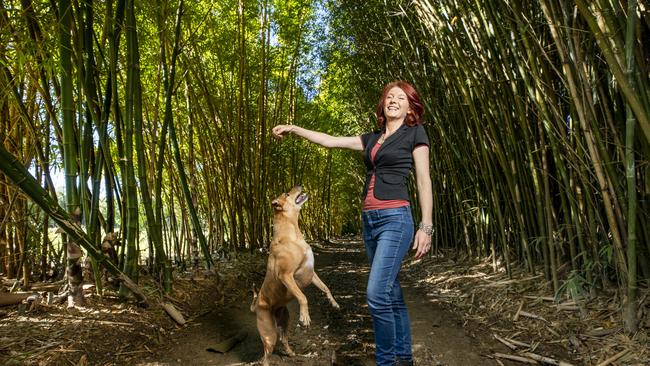
Becky, however, does acknowledge there’s one important factor to successfully growing bamboo: always use the clumping variety, not the running variety.
She says there are 1500 species of bamboo worldwide and on the Darts’ property about 250, of which 180 are clumping varieties.
On Becky’s section of her father’s farm, there are two main clumping varieties: Thai green and asper, although she does use some of the shoots from her father’s land in her business as well.
She says because her father, Durnford Dart, is one of the early pioneers of bamboo farming in Australia, father and daughter know how to manage the running varieties.
“Unless you know what you’re doing or have consulted with a bamboo expert, we recommend planting the clumping variety, which is more aesthetically pleasing and will also not outgrow a predetermined diameter, so you can still stay friends with the neighbours. We want people to enjoy their bamboo, not have it create a pain point.”
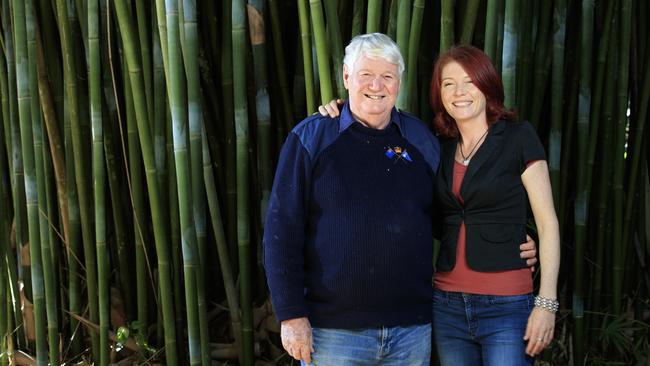
DAD KNOWS BEST
Durnford, now 83 and still running the property, was working in the car industry when he spotted bamboo on an overseas trip, deciding in 1989 to plant it on his Belli Park land.
“I think the moment Dad fell in love with the bamboo was when he had taken some time to sit in a temple garden in Japan,” Becky says. “He tells me that he heard the breeze through the leaves and immediately felt a sense of peace and serenity. He wanted to create this on the land back home.”
Durnford’s business, Bamboo Australia, continues to focus on growing bamboo for construction materials, such as floorboards, as well as propagating plants for landscaping.
Unlike her father, Becky spied an opportunity in bamboo for consumption.
With the plantation already established – “the clumping varieties live up to 150 years so will outlive me,” Becky says – she focuses her time on maintaining the plants across the 40 hectares, as well as harvesting and value-adding.
She says clumping varieties are largely low maintenance. Poles can be up to 30m tall and require pruning once a year in winter.
“Once poles get to about five or six years of age they lose their efficiency in photosynthesis, so Dad either sells them or we turn them into mulch,” Becky says.
Mulch is also vital for bamboo plant health, and is applied four times a year. Twice a year bamboo drops its leaves and Becky piles them at the base of plants for both water retention and nutrients.
In addition, she applies an organic fertiliser and her own biochar – charcoal and potash produced from burying bamboo poles in shallow trenches and slowly burning them.
Bamboo thrives in tropical climates, disliking frost. It grows according to rainfall, with the Sunshine Coast hinterland receiving about 1160mm a year. Although in recent years climate has been hard to predict, she says.
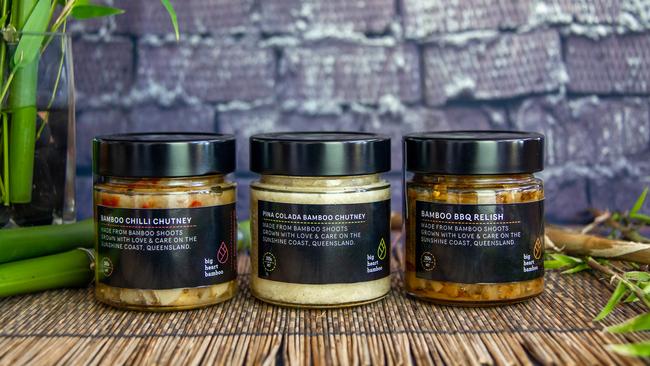
By the fourth year after planting a clumping variety, rhizomes will have multiplied to about 24 shoots. Becky says harvest can start from then, with up to 22 shoots collected annually from each plant.
Big Heart Bamboo’s two clumping varieties grow and are harvested from February to May, depending on rainfall.
Twice a week, starting at 5am to avoid the heat of the day, Becky harvests for about five hours, usually by herself.
Using a handsaw, she cuts shoots looking for a perfect conical shape, with the colour depending on the variety. Thai green, for instance, is best picked with a yellow tinge.
She then takes harvest bins to a commercial kitchen rented in nearby Eumundi and, “working hard and fast”, she removes the outer layers of the bamboo, washes them and takes out the hearts, to deliver fresh to restaurants.
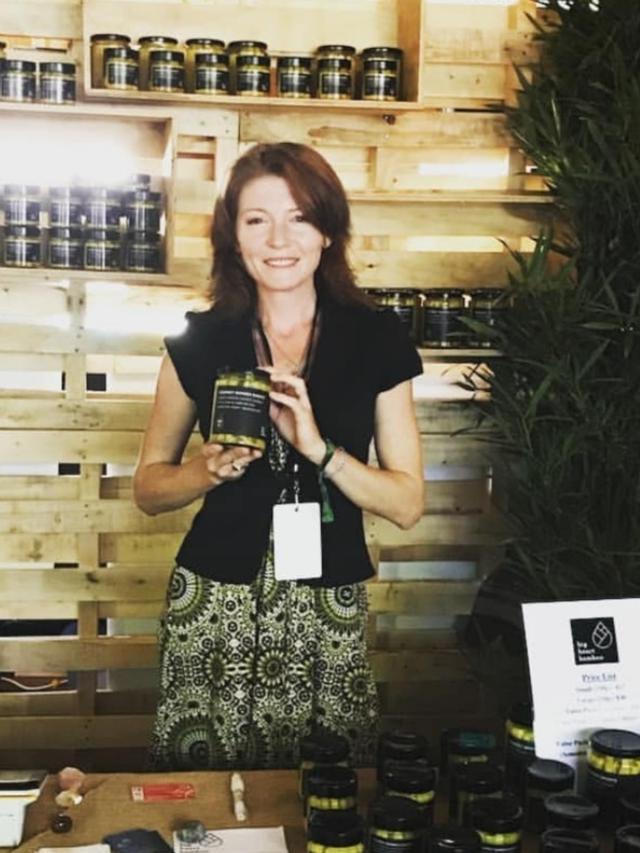
Fresh shoots need to be boiled to remove the bitter taste before consumption.
In a 12-hour shift, she peels, slices and boils the shoots to make her value-added condiments, adding her own special pickling brew of apple cider vinegar, ginger, honey, turmeric and red gum plus tea tree smoked black pepper, an additional health boost to an already healthy vegetable.
Becky says she aims to grow the business slowly, producing 200 jars in her first year and 1000 this year.
Once coronavirus restrictions ease, she also wants to expand farm tours of the bamboo forest, with would-be visitors long curious about the work of her father.
Becky pays tribute to her dad’s legacy.
“We have differences of opinion from time to time, like any father and daughter, but I admire him,” she says.
“He’s a visionary, a pioneer, who had the guts to believe in this and do it.”
FARM FILE: Big Heart Bamboo
Becky Dart runs Big Heart Bamboo on eight hectares at Belli Park, on Queensland’s Sunshine Coast. She turns fresh bamboo into gourmet products including pickled bamboo, selling for $15.95 to $29.95, and preserves and chutneys, $9.95 to $15.95. She supplies local restaurants and some as distant as Brisbane and Adelaide.
Where: Belli Park, Sunshine Coast
More info: bigheartbamboo.com
MORE
HERRY’S HARVEST SUCCESS STEMS FROM SOIL HEALTH
TREECHANGER TREND: VICTORIA’S TOP SHIRES FOR SMALL FARM SALES

